Write Us
We are just a call away
[ LET’S TALK AI ]
X
Discover AI-
Powered Solutions
Get ready to explore cutting-edge AI technologies that can transform your workflow!

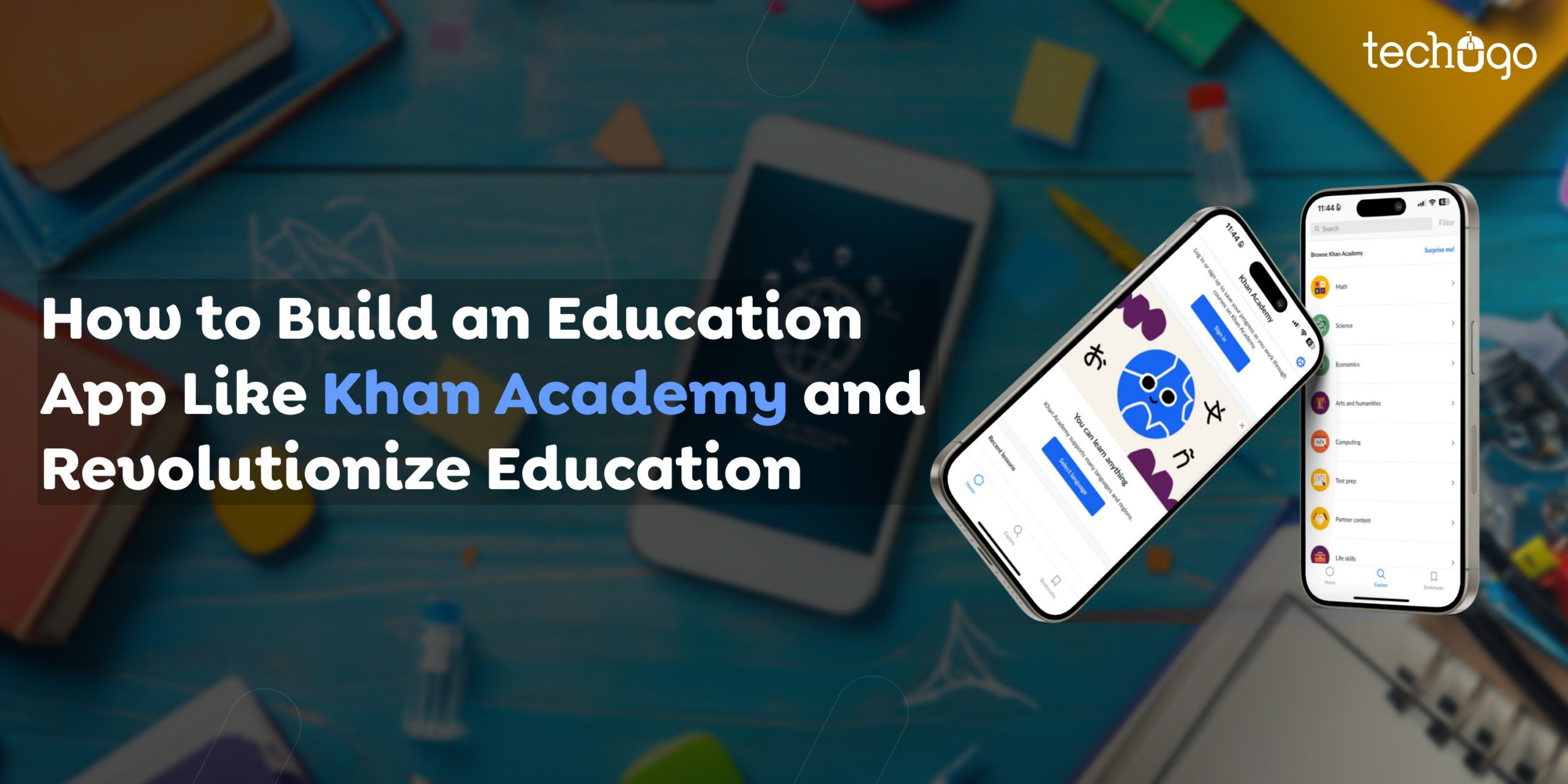
The education and learning sector has witnessed technological advances over the past decade. Udemy, Coursera, and other edtech solutions like Khan Academy have brought education to the ordinary person, where it was before, of reach, tedious, and expensive. From this perspective, education apps can be as simple as a school student learning math or a working professional upskilling in a new area.
Two outstanding organizations have stood out in e-learning and provide free, quality educational content for learners. One of these organizations is Khan Academy. The video lessons, combined with practice problems and performance progressions, enable students to master the concepts in question on the app.
Without any delay let’s get started!
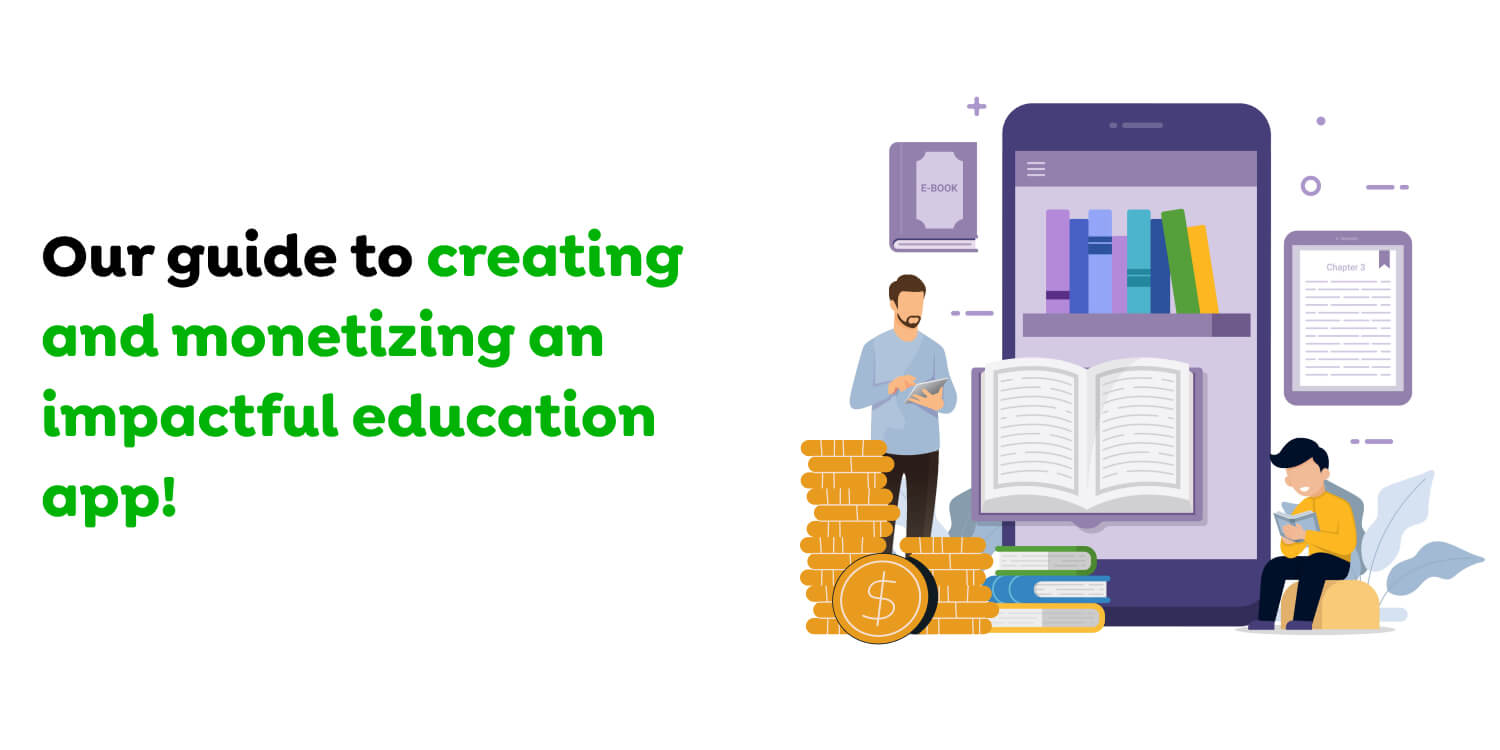
This guide will prove helpful if you are thinking about developing an application similar to Khan Academy. This blog will cover topics such as the features that your education app post must have, the development process of the app you are designing for education, the technologies that should be used for the development of an education app, the cost of developing an education app, and a plan for making the app profitable.
Please refer to the whole blog to learn more about elearning app development and gain insight into how to animate your education app effectively.
Let’s get started!
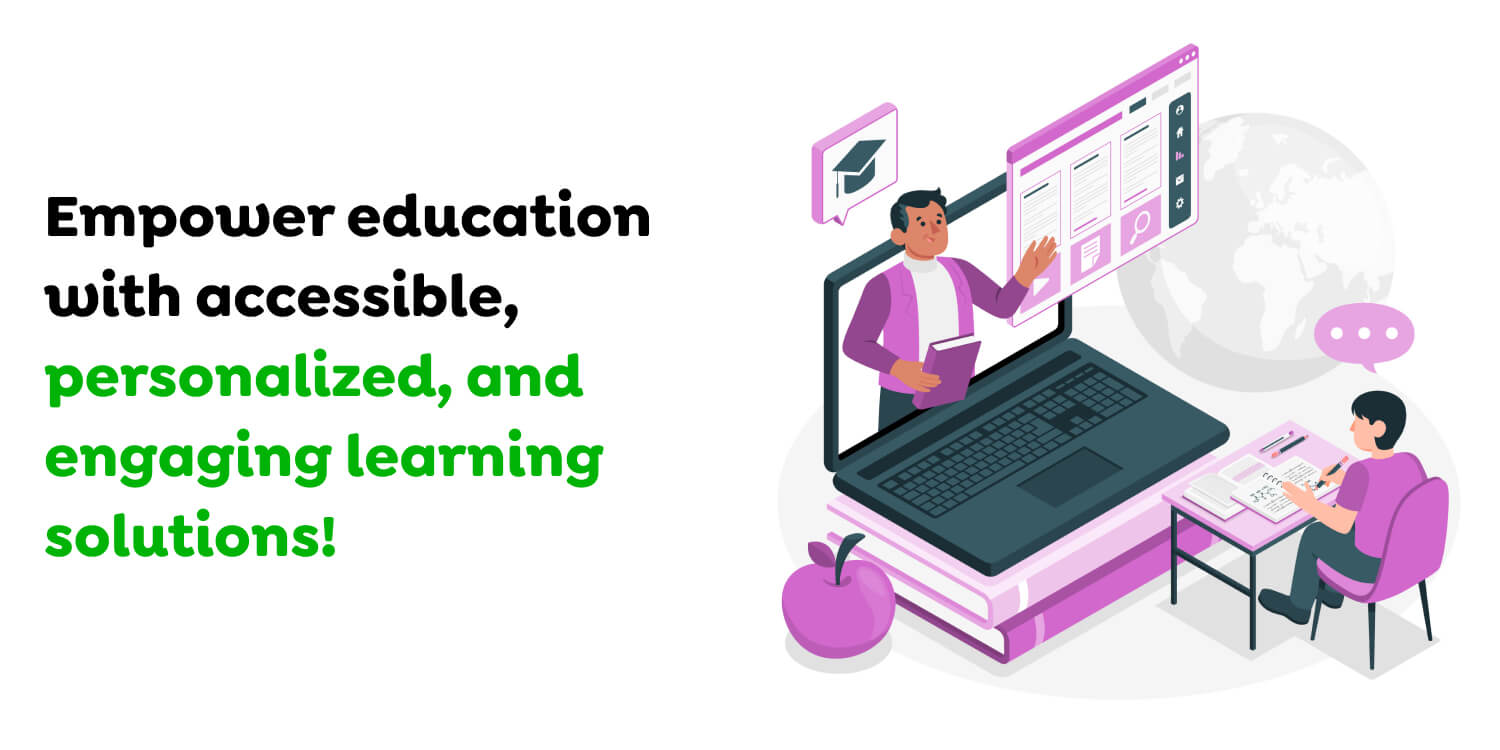
Education mobile apps transform learning by leveraging trending technology to provide personalized, engaging, and accessible solutions. With a growing global market, these apps break barriers to education, offer tailored learning experiences, and keep users motivated. Additionally, they present lucrative monetization opportunities, making them a wise investment for sustainable and impactful growth.
Let’s look at some reasons why investing in app with education app development company is a wise decision:
The global e-learning market will grow to $1 trillion by 2030. The demand for digital learning tools continues to surge, driven by technological advancements, the need for flexible education solutions, and increasing smartphone entrance.
An education app breaks geographical barriers, providing access to quality learning resources for students in both urban and rural areas.
With features like AI-powered progress tracking, students can learn at their own pace, identify gaps, and focus on their strengths and weaknesses.
Interactive content, video-based learning, and gamification engage education apps, keeping learners motivated and improving retention.
From subscriptions to certifications, education apps offer multiple revenue streams while delivering tremendous value to users.
Creating an app like Khan Academy with a mobile app development company in UK can contribute to global education, enhance accessibility, and generate a sustainable business model.
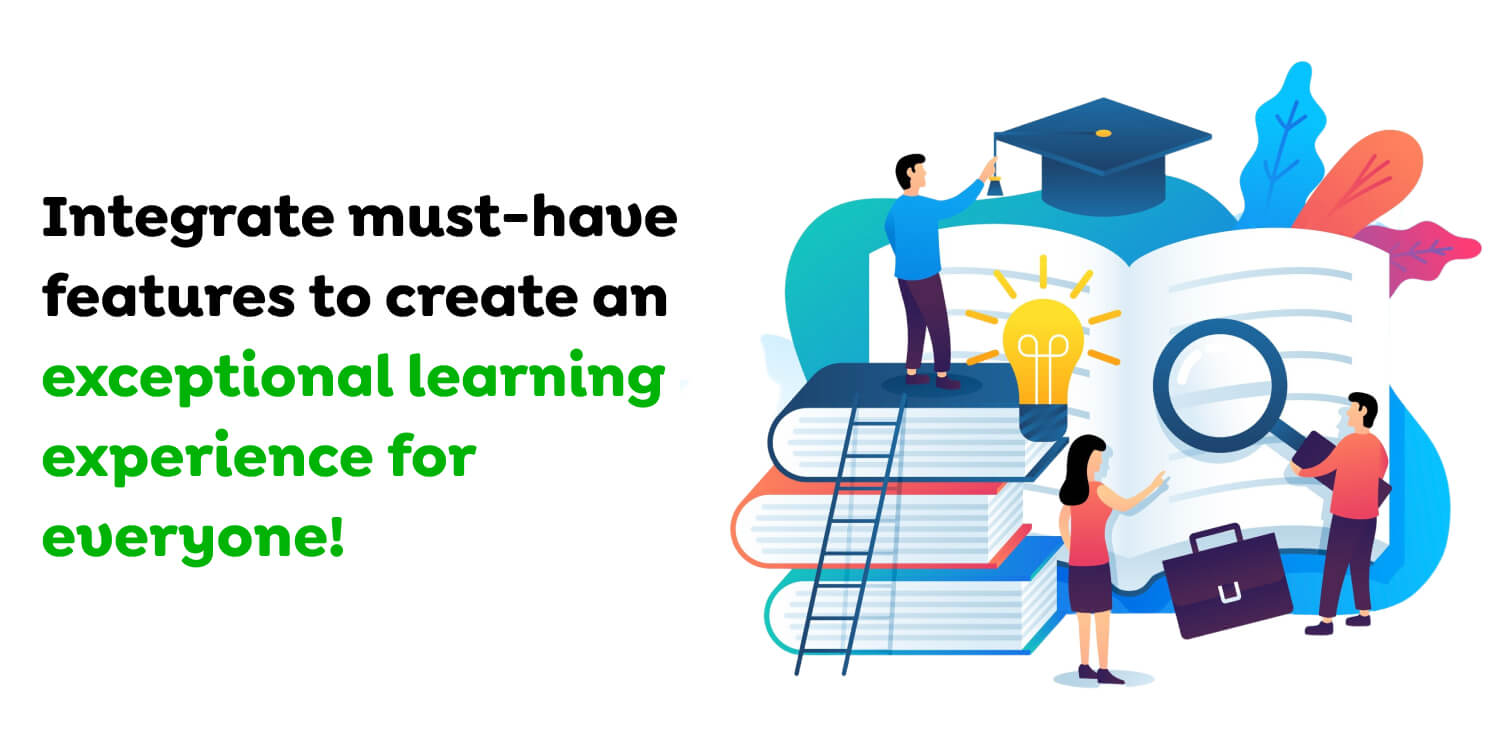
To build a successful education app, you must include features catering to students, teachers, and parents. Here’s a breakdown of the must-have functionalities:
Interactive video tutorials visually explain concepts, offering features like adjustable speed, subtitles, and bookmarks. Categorized by skill levels, they simplify complex topics for diverse learners.
AI algorithms personalize education by assessing performance, setting goals, and recommending tailored lessons. These learning paths ensure progress aligned with individual needs, enhancing the learning experience.
Quizzes, puzzles, and exercises provide instant feedback and include gamification features like points and badges. These elements make learning enjoyable while reinforcing knowledge and building engagement.
Dashboards allow students, teachers, and parents to track scores, time spent, and progress. This transparency fosters accountability and highlights areas for improvement to achieve better outcomes.
Downloadable lessons and quizzes enable learning without an internet connection, with automatic syncing upon reconnection. This feature ensures continuous learning, especially for users in areas with limited connectivity.
Providing multilingual content and subtitles makes learning resources accessible to a global audience. This inclusivity breaks language barriers and supports diverse educational needs effectively.
Teacher portals facilitate assignment creation and performance tracking while parents monitor their child’s milestones and progress. This collaboration ensures holistic and practical learning.
AI-powered adaptive quizzes analyze learning gaps, adjust the difficulty, and recommend lessons. This approach delivers precise evaluations and personalized guidance to optimize student performance.
Forums, group projects, and peer discussions promote teamwork, problem-solving, and knowledge sharing. These tools enhance learning experiences through interactive and collaborative approaches.
Push notifications provide timely reminders for lessons, deadlines, and achievements. Motivational messages inspire consistent effort, ensuring learners stay engaged and on track with their goals.
Contact a mobile app development company in USA to reach your app development goal!
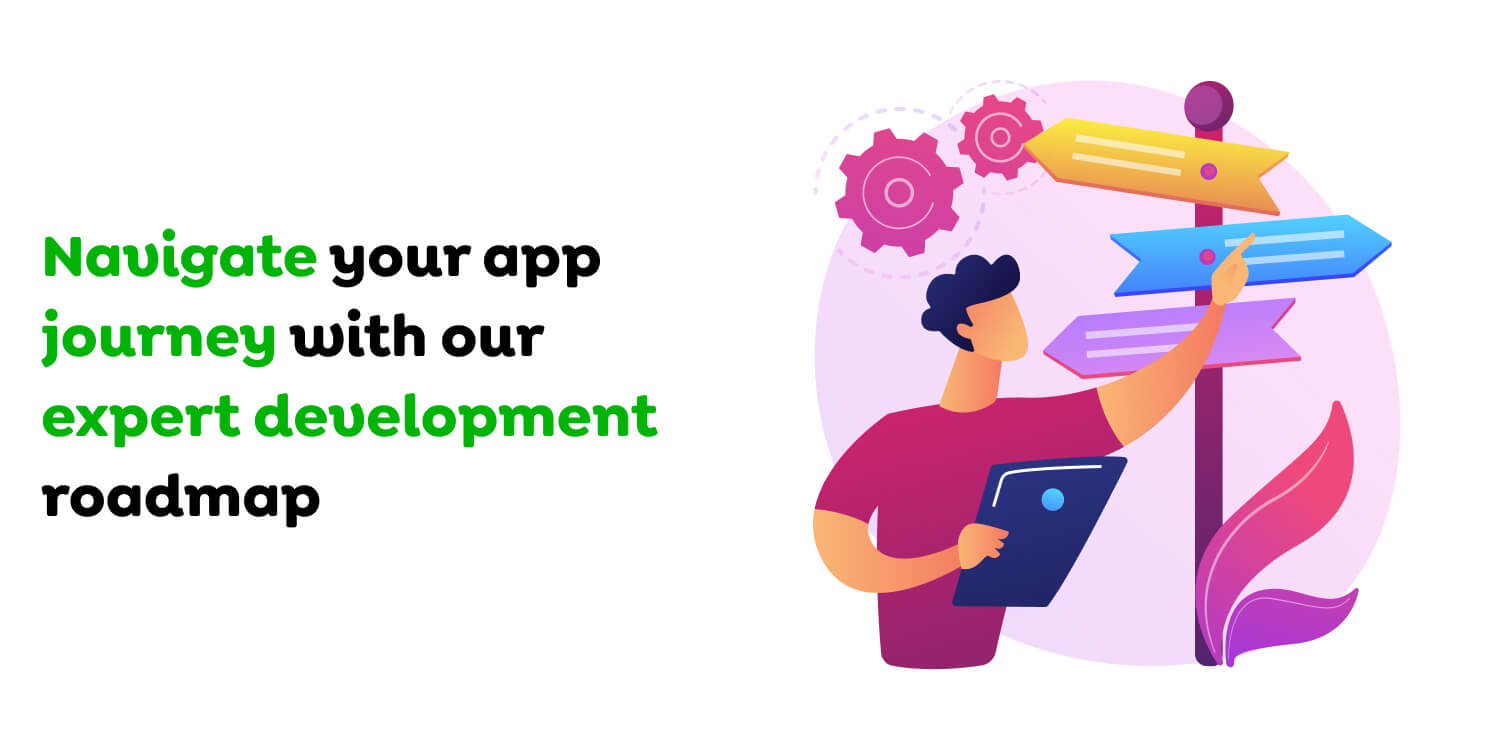
Developing an education app like Khan Academy involves careful planning, intuitive design, and the latest technology stack. Start with research to identify needs, design a user-friendly interface, and build an MVP to test the market. Enhance advanced features, ensure seamless performance through testing, and launch with strategic marketing for success.
Follow these critical steps:
Begin by identifying your target audience, such as students, teachers, or professionals, and understanding their unique needs. Analyze competitors like Khan Academy or Udemy to spot gaps in the market. Define your app’s goals, core features, and unique selling points to create a strong foundation for development.
Design intuitive wireframes and prototypes that focus on user experience. Ensure smooth navigation, clean layouts, and visually engaging elements to enhance usability and create an appealing interface.
Choose scalable and efficient technologies for your app. Options include React Native or Flutter for the front end, Node.js or Django for the backend, and TensorFlow or OpenAI for AI integration.
Start with an MVP featuring essential functionalities like video lessons, quizzes, and progress tracking. Launch the MVP to gather user feedback and validate your app’s potential in the market.
After validating your MVP, enhance the app by integrating advanced features such as AI-driven personalization, gamification, collaborative learning apps, and multilingual support to elevate user experience.
Conduct thorough testing to eliminate bugs and ensure optimal performance. Deploy the app across multiple platforms, including iOS, Android, and web, to reach a broader audience.
To promote your app, leverage content marketing, SEO strategies, and targeted social media advertising. Partner with educational institutions and influencers to maximize visibility and attract users.
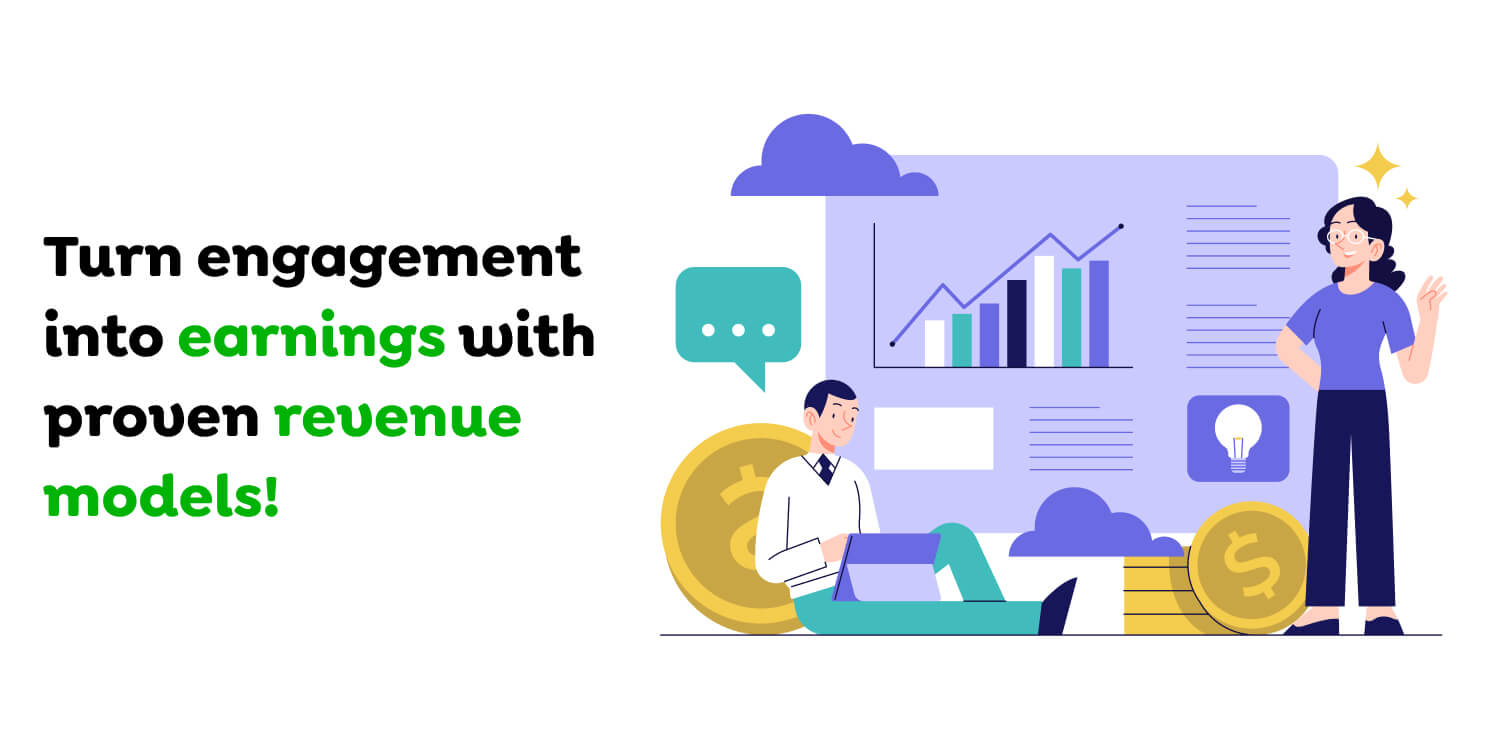
Monetizing an education app effectively ensures sustainability while providing value to users. These approaches offer diverse revenue streams, from freemium models to subscription plans, certifications, in-app ads, and strategic partnerships. Balancing user experience with profitability, these models help create a thriving platform that supports quality learning and business growth.
Here are proven monetization models for education apps:
1. Freemium Model: Free access to essential educational content to attract users while charging for advanced lessons, offline accessibility, exclusive features, and course certifications. This model encourages users to explore the platform and convert to premium for enhanced learning experiences.
2. Subscription Plans: Introduce flexible and tiered monthly or annual subscriptions designed for individual learners, families, or educational institutions. These plans can include bundled features, personalized recommendations, and multi-user access to drive value.
3. Course Certifications: Provide verified, shareable certifications for completed courses, appealing to learners focused on career growth or academic validation. Charging for these certificates creates a reliable revenue stream.
4. In-App Ads: Run strategically placed, targeted advertisements from relevant educational brands. Ensure these ads do not disrupt the user experience, maintaining engagement while generating revenue.
5. Partnerships: Forge partnerships with schools, colleges, and corporations to create tailored courses, offer co-branded solutions, or attract sponsorships, boosting credibility and reach while creating additional revenue opportunities.
These models are designed to balance profitability and user satisfaction, ensuring sustainable growth for your platform.
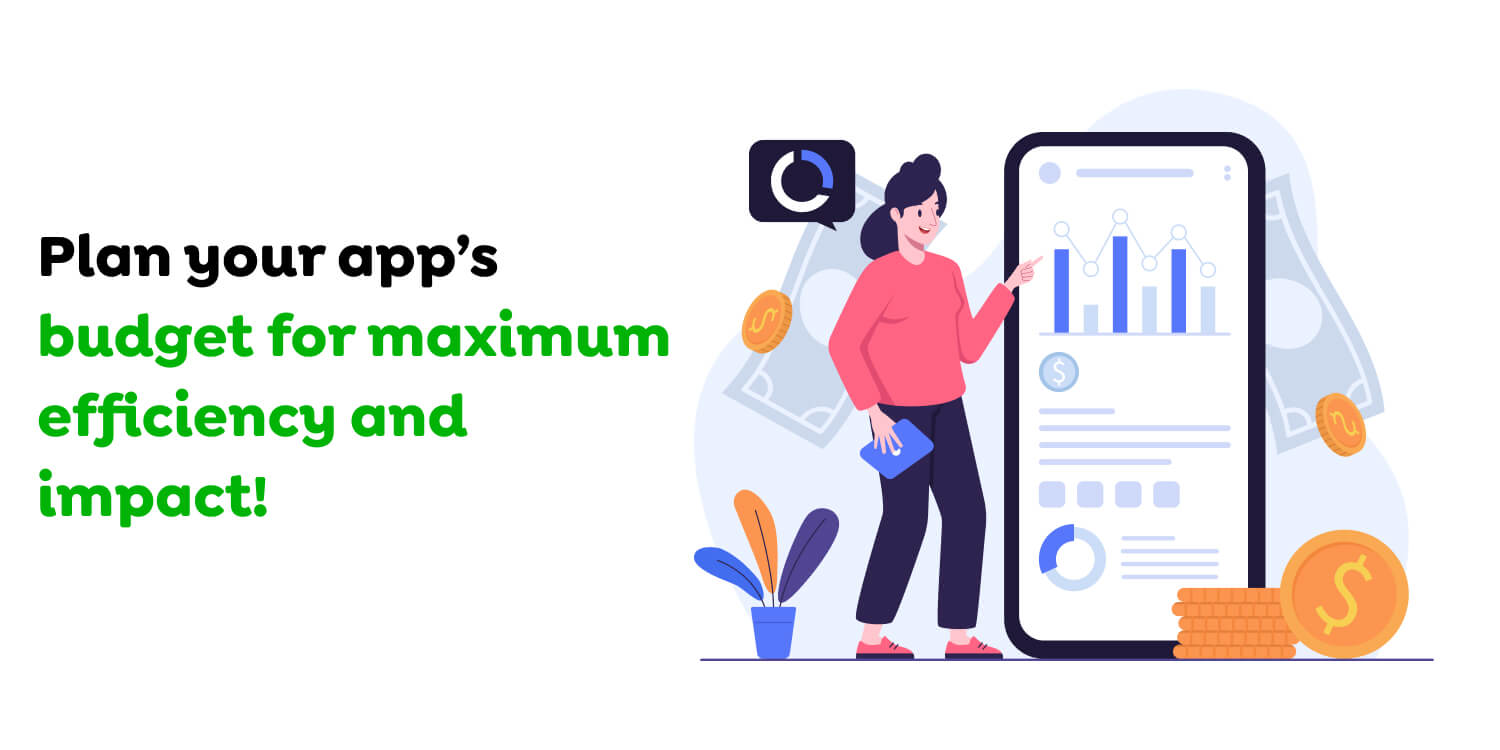
The cost to build an education app varies based on factors like features, platform, and location of the development team. Here’s a rough estimate:
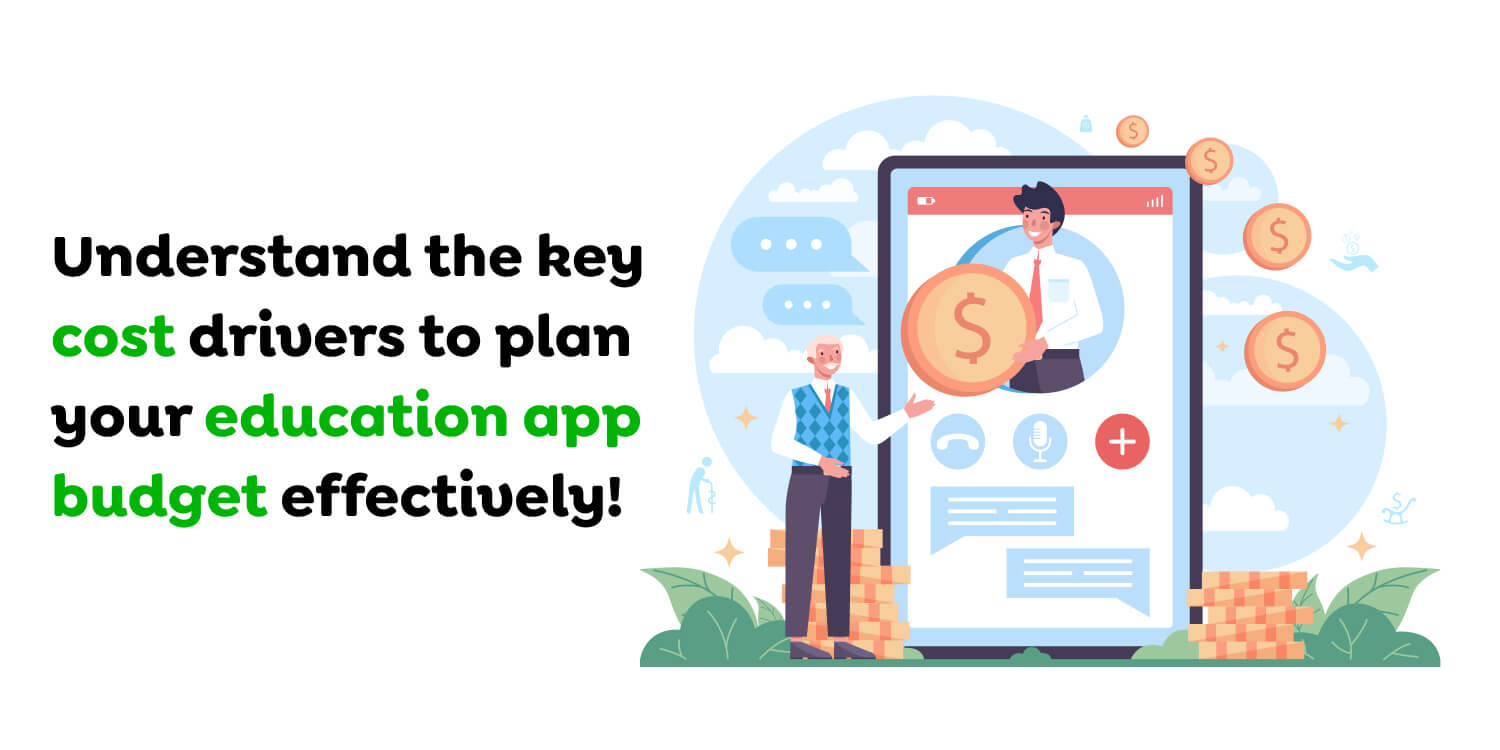
The level of complexity of the app significantly affects the development cost. Simple apps with basic features cost less, while advanced apps with AI-driven personalization, gamification, and collaborative tools require more development time and resources.
High-quality UI/UX design is crucial for user engagement. Custom designs, interactive elements, and animations increase the cost compared to more straightforward, template-based designs.
The range of features included in the app—such as offline learning, multilingual support, and teacher portals—directly influences the development cost. Adding advanced features like Artificial Intelligence assessments and collaborative tools can raise the budget.
The geography and composition of the development team are primarily responsible for such costs. For instance, the price of hiring developers in North America or Western Europe is much higher than outsourcing to a country like India or Eastern Europe, which has nearly similar quality.
Creating and maintaining an app for iOS, Android, and the web will cost a lot of money, especially if the development is done thoroughly for each operating system instead of using a framework like Flutter.
Expenses like hiring developers to ensure that none of the bugs are present and all screenings for devices add up to the cost. Further, the budget should include replenishment of new app features, constant app maintenance, and further expansion.
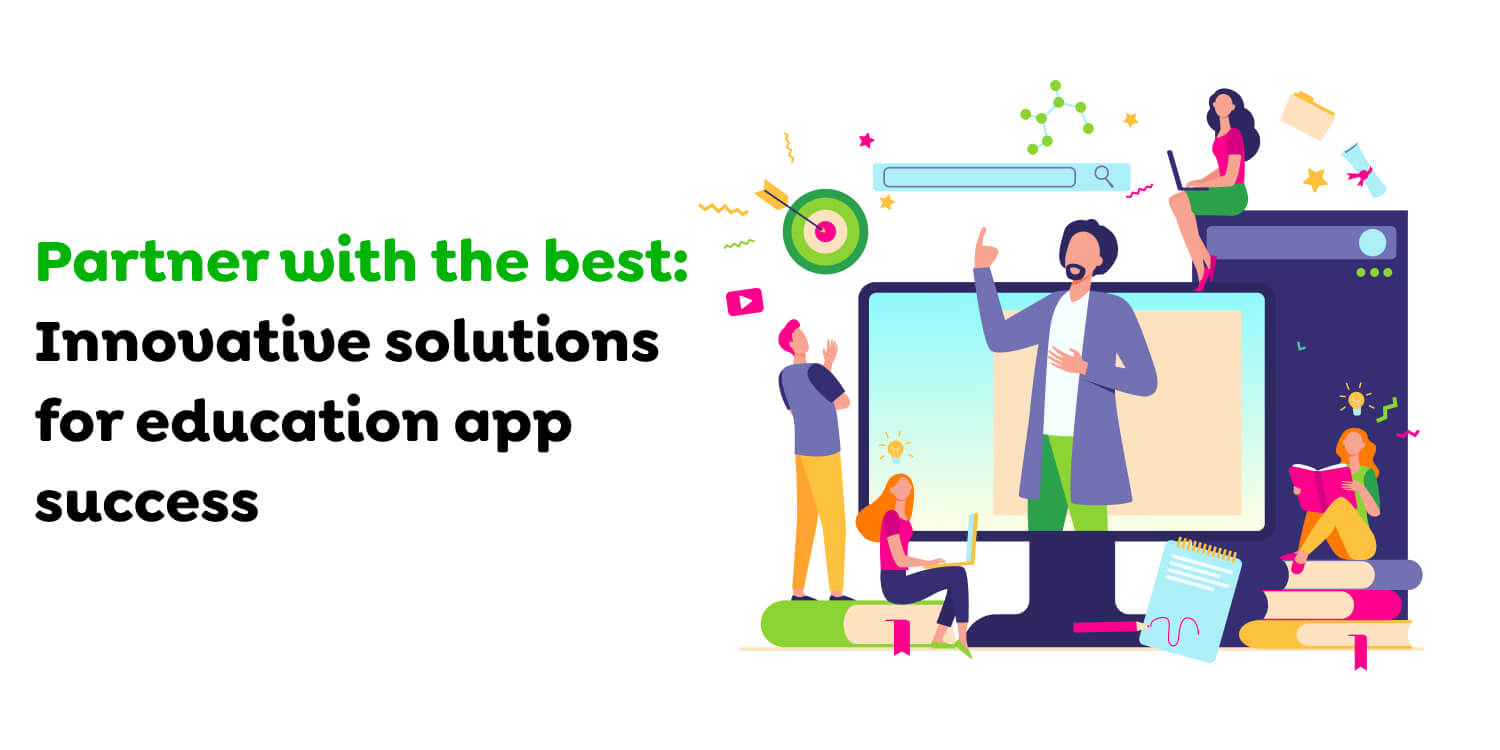
At Techugo, we specialize in developing custom education apps that transform learning experiences and redefine how knowledge is delivered in the digital age.
Here’s why clients trust us:
From initial concept to flawless execution, Techugo delivers innovative, impactful, customized EdTech solutions that align with your vision. Let’s create the future of learning together!
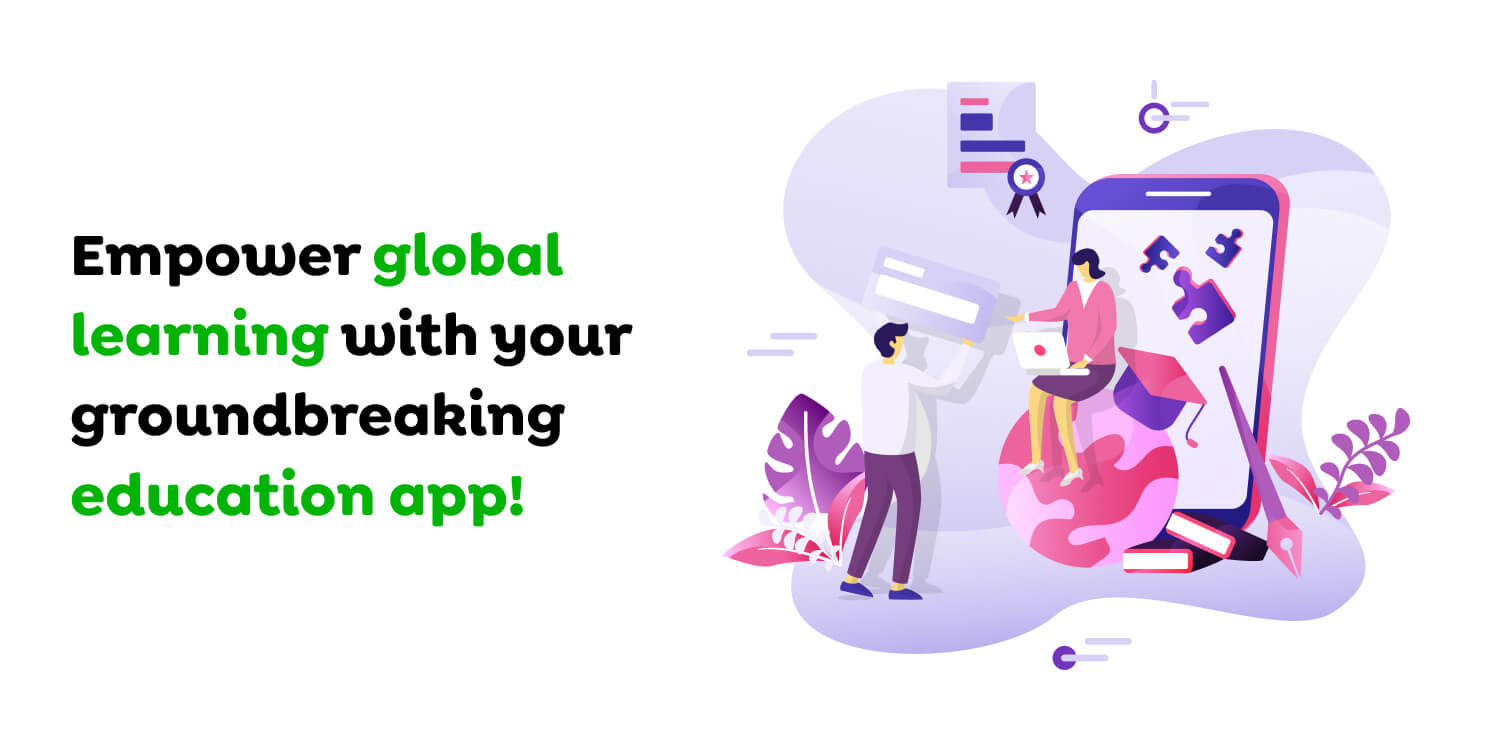
The education sector is more than ready for innovations; there is great potential in teaching and creating creative minds. Creating an app like Khan Academy enables you to create a lasting positive effect and enhances the learning of students, teachers, and everybody interested in lifelong learning worldwide, offering quality, accessible, and easy-to-follow courses.
Your platform inspires and empowers users to pursue educational frames and build global learning societies. If you are willing to make this change, Techugo is with you and ready to help and assist you all through the process. In unison, we can translate that vision into reality and make a tangible difference through a state-of-the-art education solution.
Get in touch with us today and start building the future of education!
Write Us
sales@techugo.comOr fill this form